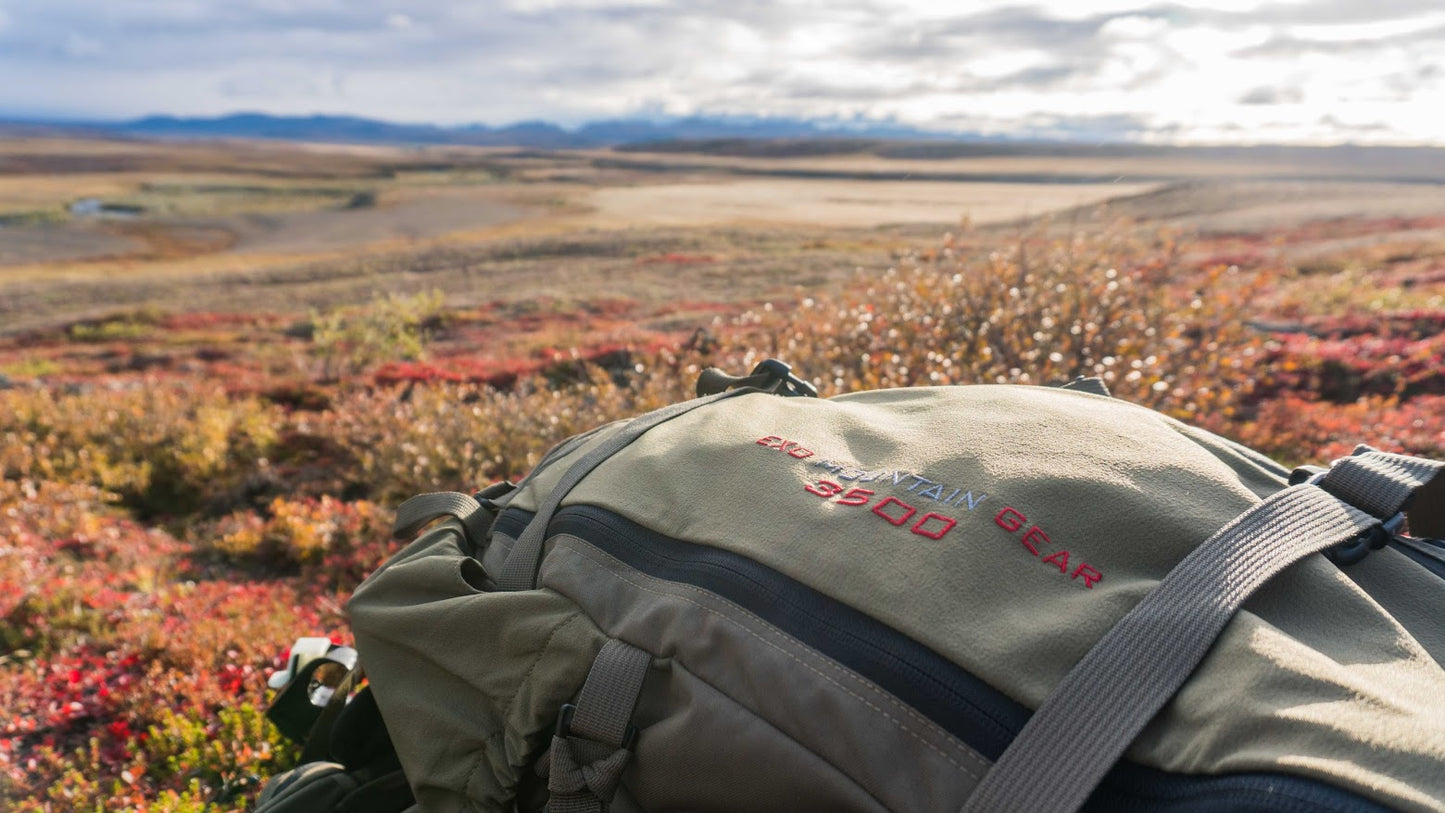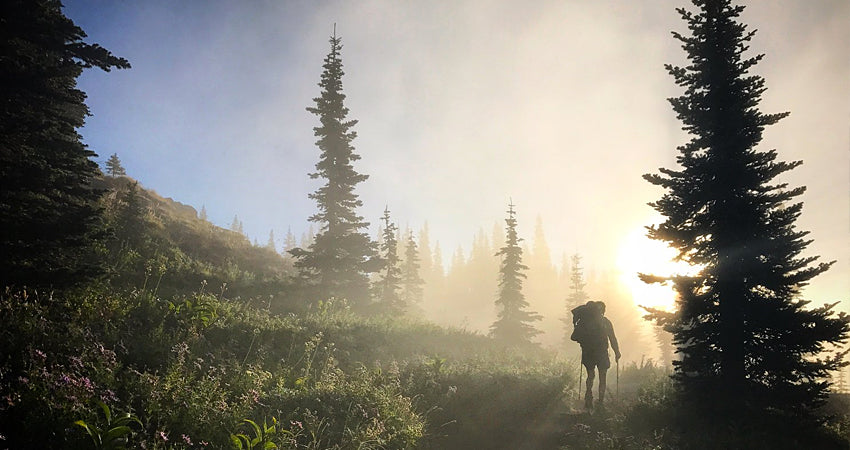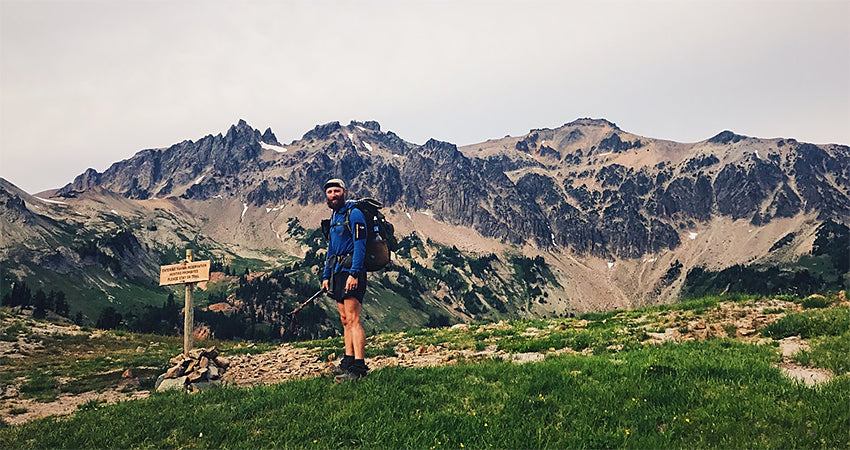
Outside of purchasing something new, no one really talks about how to effectively drop your overall pack weight. I had the pleasure of hiking over 2000 miles of the Pacific Crest Trail in 2017 and learned a few things along the way. When you’re covering 25 miles each day for days and weeks on end, you learn implications of pack weight.
By the end of my hike, I could literally feel the difference in a single pound. I felt it at the end of my days when I was closing in on those high miles. Having too much food or extra gear meant that my joints, feet, and legs were hurting far earlier than they should have been. When your only purpose in life is to cover miles, the pain a single pound or two induces could mean the difference between crushing a few more miles or having to stop where you’re at for the night. To put it in terms for hunting, it could mean pushing up and over that ridge to chase a bull at last light or letting him go because you’re exhausted. Pack weight has a direct impact on endurance and endurance puts meat in your freezer.
Reducing your pack weight doesn’t need to be a complicated and expensive exercise. Here are three easy methods for reducing your weight immediately without making a single purchase…

1) Learn the Difference Between What You Need and What You Think You Need
Recruit your wife, a close friend, or someone who might enjoy an opportunity to torcher you. Pack as if you’re headed out for a 3-day trip and with you sitting across the room out of arms reach, tell them to begin pulling each item out one by one (tie yourself down if you have to). Your assistant will make two piles; the first is the “need” pile and the second the “think you need” pile. To successfully get an item into the “need” pile you must not hesitate for a single moment when the item is pulled from the bag. This is where your assistant must be tough on you because if there is a pause or anything resembling a decision, the item goes immediately into the “think you need” pile. To be effective you must to be honest with yourself and your helper has to be ruthless. There are no debates in this game, only actions.
By the end of the exercise, you should have two good piles going. Bring out the scale and weigh the “think you need” pile. You’ll likely find that you’ve now dropped your pack weight by 1-3 pounds. The next time you leave for an overnight scouting trip, take only the items that made it into the “need” pile and see how it goes. I guarantee you’ll not only survive, but you’ll feel better moving through the backcountry.
2) Reduce the amount of “Single Use” Items in Your Pack
I hiked the PCT with a friend who had so many single use items in his pack that it literally started bursting at the seams. For hundreds of miles he struggled with that last push of the day and found it difficult at times to reach his desired mileage. After making a few adjustments to his load out, he dropped his pack weight by at least 5 pounds or more and from that point on he made every personal mileage goal he made for himself and did so with energy left in the tank.
When we did his pack dump, we found he had numerous single use items. Among the many, there was a head net for bugs, a sack for carrying resupply groceries, and one for stuffing his jacket into when he needed a pillow. When the dust settled, he decided to use the head net for everything and tossed out the other items. There were also a few single use containers for carrying fluids in like electrolytes, coffee, or oatmeal. My partner tossed everything except for his cook pot for all meal/food/coffee related activities and two 1 liter Smart Water bottles for mixing powders and filtering water.
As for myself, I tossed out my beloved coffee mug, neck scarf, extra underwear, and a few baggies I wasn’t making good use of. I cooked and drank coffee from my Jetboil and used my neck gaiter to warm my neck when chilled. That extra set of underwear I was carrying was shipped home as well and I never regretted it for a moment (I even shipped off my pants).
You might be asking if tossing out a scarf, baggie, or a pair of underwear to save a few ounces is really worth it, but you’d be surprised at how fast ounces add up to pounds. Go through your pack and identify how many items fall into the “single use” category and then ask yourself if you can do the same function with something else you’re already bringing with you or if you really need it in the first place. Do you really need 3 knives and an extra pair of underwear? Do you need a backup headlamp when you have a light on your smartphone? Get creative and make sure everything going in your pack will not only be used, but that it has the potential to be used for more than one thing.
3) Stop Being So Organized!!!
As hunters, we love to organize our gear. We love pockets, baggies, and things that go inside other things. It can be fun to organize ourselves, but organization can lead to unnecessary weight and a hit efficiency. Each additional zipper, pocket, compartment, or plastic buckle weighs something and before you know it, you’re carrying an extra pound of weight in organizational based objects. Remember, the more space you give yourself to fill, the more likely you are to fill it.
To battle this need to organize, do this;
Dump all your items on the ground that you’ll take for a three-day backpack hunt and count the amount of organizational baggies, stuff sacks, and pockets you see. These might look like a water filter bag, ditty bag, first aid kit, hygiene, etc. Lay them all out and try to remove as many as you can by combining them or ditching them altogether.
I did this on the trail a few times and continued this exercise each time I went to resupply for the upcoming stretch of trail. By the time I reach Canada, I had combined my first aid kit with my hygiene bag, completely tossed out my water filter bag by just attaching my Sawyer Squeeze to a Smart Water bottle, threw out the lid to my backpack, and ditched an entire extra organizational pouch by relocating those items to various places on my pack.
Though baggies might not weigh very much, they still weigh something and you can easily drop half a pound by removing them. In doing this, your efficiency in camp or during breaks will skyrocket because you’re not digging through this pouch or that looking for where you stashed something. Keep your eyes outside your pack where the animals are, not inside.

Backcountry hunters are a different breed. If there is any one group of outdoorsman and woman who deserve the lightest pack possible, it’s them. They’re the only group of backpackers who fully intend on coming out far heavier than when they went in. Either one of the above-mentioned exercises will help you reduce your overall pack weight. Use all three together and you’re going to be dropping some serious poundage.
Do yourself a favor and make sure that each and every item going in your pack is going to benefit you rather than burden you with unnecessary ounces. When you’re smoked from the days hunt and that bull screams from the next basin over, you need to have as much gas in the tank as possible to go after him. How much you have left in you is directly related to the weight you’re carrying on your back.
Want more? Listen to our #HuntBackcountry podcast interview with Emory as we discuss his PCT hiking experience…
Emory is the creator of By Land, a blog and podcast focused on promoting better backpacking. Be it backcountry hunting, Thru Hiking, or heading out as a weekend warrior, Emory believes that backpacking does not need to hurt or be uncomfortable. The only fatigue, pain, or strain that should be felt should be a result of pushing yourself further because your gear and mental preparation has allowed you to.
